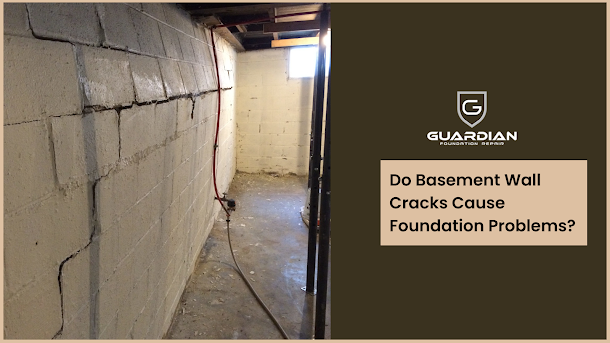Do Basement Wall Cracks Cause Foundation Problems?
Tell-Tale Signs of Basement Wall Cracks
Several issues can lead to cracked basement walls. Let's reveal the root causes that are especially prevalent during this problem and their relation to your home's foundation.
Repaired and Renovated Basements
Poor Foundation Construction
Too Wet or Dry Soil is a Concern
Expansion and Contraction
The water poured into the concrete is very necessary when mixed to make a solution, and it will naturally expand when wet and contract once it dries. If the temperatures fluctuate or the foundation experiences changing moisture levels can cause concrete to expand and contract. Over time, the growth and shrinking often lead to cracks that need control.
Gutters & Downspouts Issue
Gutters must be clean from vegetation, and ensure downspout drains are pointed away from your home. Checking the gutters regularly can help ensure that they are not clogged, nor are any leaks found that can cause water to overflow near the foundation and damage it.
Improper Drainage System
Related Read: Cracked or Bowed Basement Wall Repair: Reason Why You Need a Quick Fix.
Is the Basement Wall Crack a Possible Sign of a Foundation Problem?
Several cracks in basement walls, including diagonal, vertical, or zigzag, may not indicate a serious issue. Furthermore, if the basement wall crack measures one-eighth of an inch or less, you probably need to pay attention to it. Plus, homeowners must be concerned about the common horizontal cracks in their basement walls. They might indicate a structural problem with your foundation. It's advised not to delay and seek a professional inspection if you notice cracks in walls that can lead to severe issues if not examined and treated. The experts can recognize and diagnose these problems and perfect your basement's solution.
Final Thoughts
If you notice any minor or major basement wall cracks or any other signs of foundation problems, it's always best to call a professional for an inspection. After all, even minor cracks must be sealed. Otherwise, they will allow water inside, leading to moisture building and water damage.
Moreover, when left untreated, cracked foundation walls can worsen over time and lead to significant foundation problems. The sooner you repair these cracks, the less likely you'll face expensive structural damage. Foundation experts specializing in crawl space, foundation, and basement wall repair must be consulted. They can quickly and efficiently fix basement wall cracks, regardless of shape and size. Hurry up, schedule a free inspection, and protect your home's investment.



Comments
Post a Comment